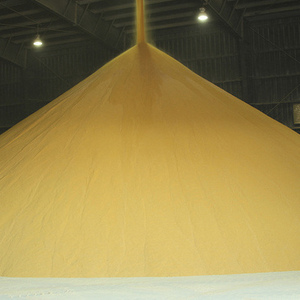Commodities: DDGS prices drop, renewing interest outside China

July 28, 2015
BY Sean Broderick, CHS
As August approaches, values in the DDGS market have rebounded a bit. Chinese cargoes, which last month looked to be a lot more at risk of getting executed, either did get shipped, or got rolled to a deferred month. Values dropped to the point that the domestic demand, which had previously been priced out of local rations, began to work their way back in. Container demand never dropped, so the lower prices created additional interest from other Southeast Asian destinations.
The month of July saw similar river conditions to that of the end June, which led to a tightness in barge availability, and increased prices in the gulf, which continued on throughout the course of the month. Given the large volume that had been sold for the second and third quarters to the bulk market, the river conditions were especially influential. Even with the business that rolled, or got delayed, there was still a lot of tonnage that loaded out in bulk.
Looking ahead, the biggest factor that is going to influence the price of DDGS in the U.S. is the price of corn and soymeal, and all eyes will be on crop conditions here. But the policies in China also bear watching as well. They have a burdensome amount of corn in storage, and a good crop on the way. How that supply issue gets solved is sure to impact their demand for U.S. DDGS.
Advertisement
Advertisement
Advertisement
Advertisement
Related Stories
The European Commission on July 18 announced its investigation into biodiesel imports from China is now complete and did not confirm the existence of fraud. The commission will take action, however, to address some systemic weaknesses it identified.
The U.S. exported 31,160.5 metric tons of biodiesel and biodiesel blends of B30 and greater in May, according to data released by the USDA Foreign Agricultural Service on July 3. Biodiesel imports were 2,226.2 metric tons for the month.
CARB on June 27 announced amendments to the state’s LCFS regulations will take effect beginning on July 1. The amended regulations were approved by the agency in November 2024, but implementation was delayed due to regulatory clarity issues.
Legislation introduced in the California Senate on June 23 aims to cap the price of Low Carbon Fuel Standard credits as part of a larger effort to overhaul the state’s fuel regulations and mitigate rising gas prices.
The government of Brazil on June 25 announced it will increase the mandatory blend of ethanol in gasoline from 27% to 30% and the mandatory blend of biodiesel in diesel from 14% to 15%, effective Aug. 1.
Upcoming Events









